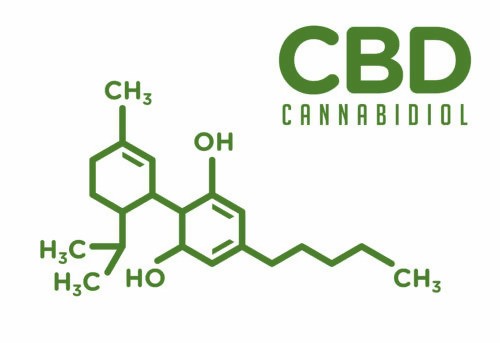Clearing the Smoke on Cannabis

The demand for CBD (cannabidoil) is increasing, yet there is still much confusion and shifting legalities regarding the controversial cannabis plant from which CBD comes from. So it’s time to clear the smoke.
Cannabis is an annual, dioecious, flowering herb. There are several different species of the cannabis plant and a growing variety of each species, each having a different chemical make-up. There are 483 identifiable chemical constituents in the cannabis plant, which work synergistically at times to produce different effects in the body. These chemicals can be divided into three groups: cannabinoids, terpenes and flavonoids. The most talked-about and researched are the cannabinoids tetrahydrocannabinol (THC) and cannabidiol (CBD).
THC is psychoactive and is best known for producing a “high”. THC is derived from what most call marijuana but more accurately THC is cultivated in a wide variety of cannabis plants. Some of these plants also contain CBD, but typically when THC is in high concentrations (5-30%) within a cannabis plant, the CBD levels are usually low. While there is some therapeutic value to THC, research has shown it to negatively effect cognition, increase heart rate and regular use leads to tolerance and psychological withdrawal symptoms including irritability, insomnia and panic attacks. Cannabis plants and plant products containing more than 0.3% of THC are considered a class 1 controlled substance by the Federal government and are considered illegal.
CBD has been identified as an anti-inflammatory, an anti-oxidant, an analgesic and offers neuro-protection. It is not psychoactive and will not produce a “high”. While it is generally considered as safe, CBD can cause diarrhea, changes in appetite and fatigue in some people. CBD is contained within all cannabis plants, but concentrations can vary depending on the plant species and growth environment. Charlotte’s web, is a variety of cannabis high in CBD but without THC that became popular after drastically reducing epileptic seizures in Charlotte Figi. “Hemp” is the common name for varieties of cannabis that produced low levels of THC(>0.3%). In fact, the 2018 Farm Bill made “hemp” and hemp-derived products federally legal to grow and sell with the possession of a license.
To get the maximum health benefits from the cannabis plant while staying within the parameters of the law, it is best to get high concentration CBD oil from a broad-spectrum hemp oil that contains other health benefiting compounds like terpenes and flavonoids. Worried about failing a drug test? Be sure to use high-quality, scientifically vetted hemp-based products at the standard serving size (not more than 1000mg/day).
